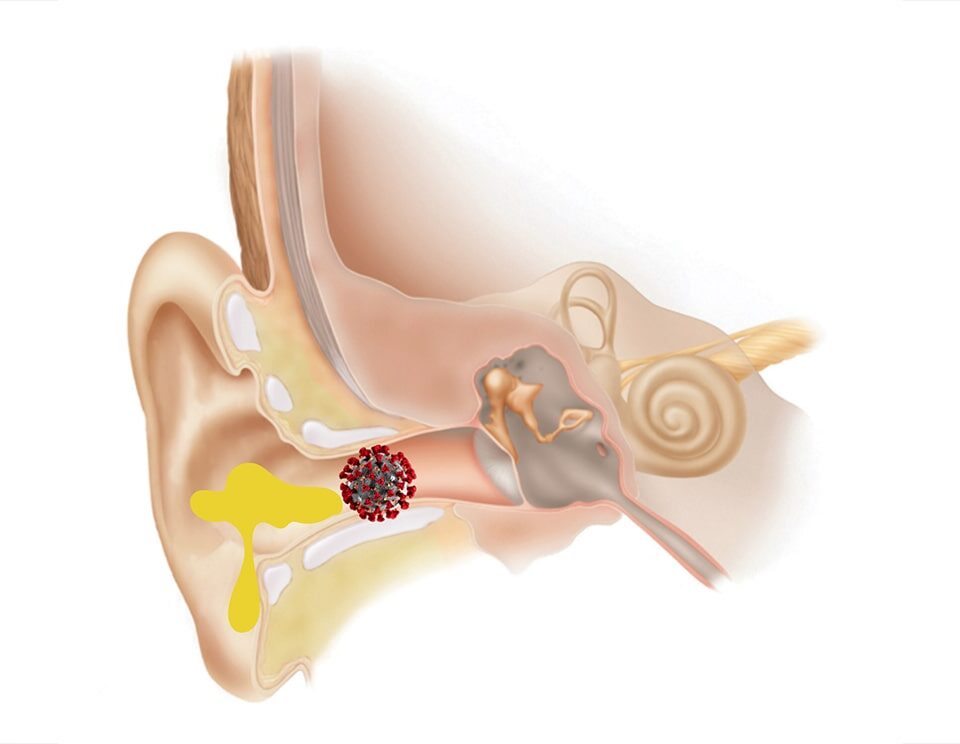Stress is an inevitable part of everyday life. Too much of it can really take a toll on your mind, body, and soul. When you’re constantly under stress, your body doesn’t get a clear signal to return back to normal and relax. If the stress is prolonged, you can begin to experience physical and mental symptoms, like anxiety, headaches, an upset stomach, depression, and even hearing/auditory issues.
How does stress affect my hearing?
When you’re under a lot of stress, the overproduction of adrenaline reduces the blood flow to your ears, which then affects your hearing. The hair cells in your inner ear rely on a constant flow of blood in order to receive the right amount of oxygen and other nutrients needed to keep your hearing healthy. Stress can cause a variety of different auditory and hearing issues, including ringing in the ears (tinnitus), sensitivity to sounds, as well a perception of altered hearing. It’s important to find the root of your stress, and manage it as soon as possible to keep your hearing healthy!
While the ideal goal would be to eliminate all factors of stress from your life, that may not always be possible. We suggest finding ways to reduce stress when possible, take a break to recover from it, and allow your body to return to normal. Here are five ways you can reduce stress from your life:
Build a general awareness
It’s normal for everyone to get stressed, but it’s important to identify the signs of stress in your own life in order to prevent it from causing damage. Regularly acknowledge when you’ve reached your daily limit. Deepening your awareness can motivate you to remove stressors from your life and prioritize relaxation.
Take a break, and do it often
According to a recent study, 29% of Americans who work from home don’t take meal breaks during their workday, and 6 out of every 10 participants felt guilty about taking any sort of break at all. When we constantly overwork our bodies, we don’t have time to recharge and heal, which means it’s more likely that our physical and mental health may suffer. Sometimes, taking an entire hour away from your responsibilities can seem like a lot at once, so we find that taking smaller and more frequent breaks feels less daunting. We suggest scheduling several micro breaks throughout your hectic day to ensure you’re giving your body and mind the time off that they need.
Create healthy habits
You’re always told to eat healthy and be active, but how does that relate to reducing your stress? Well, creating a healthy lifestyle will ensure that your body remains strong, which can reduce the likelihood of you becoming physically ill. Sometimes when we’re stressed, it’s easy to allow our bodies to suffer. Being active and eating healthy can increase your feel-good endorphins, thereby, minimizing stress. Consider adjusting your diet to incorporate more healthy foods, and taking the time for a daily walk, even a short one.
Get a good sleep every night
This is probably the most effective thing you can do for yourself, but it’s often the first thing people neglect. Sleep is where your mind and body can rest and recharge for a new day. If you’re overcome with too much stress, you may find it difficult to get a solid rest. If you can’t seem to sleep well during stressful periods, a relaxing bedtime routine can help soothe you and give you the best chances of a good night’s sleep. Be consistent with your sleep schedule so your body knows when to decompress.
Set boundaries for yourself
The easiest way to reduce stress is to know how to prevent it. You might want to do it all, but doing more than is healthy for you can have consequences. Learning to say no will help you prioritize your well-being. We recommend prioritizing what’s important to you, and scheduling time to put yourself first. This can be as simple as sitting down to watch your favourite movie, or taking a few minutes every day to sip on your cup of coffee alone and relax.
We believe that it’s important to reduce, or at least manage, your stress levels as much as possible so that your overall health doesn’t suffer. Most of the time, stress-related hearing issues are only temporary and will subside on their own, but getting your hearing formally checked by an audiologist may help put you at ease. If you’re having difficulties with your hearing or are experiencing any auditory issues, schedule an assessment with one of our audiologists — we’d be happy to see you. To book an appointment with us, please call us 419-901-4770 or e-mail us at info@audiosense.ca.
About the Author
Salima Jiwani is the Founder/Director and Lead Audiologist at AudioSense Hearing, Balance & Concussion, an audiology clinic in Yorkville, Toronto. Salima has a keen clinical and research interest in disorders of the external, middle and inner ear, including hearing loss, auditory processing difficulties, tinnitus, sound sensitivities and post-concussion auditory deficits. Salima is passionate about understanding how the brain responds to sound after injury and in post-surgical management of cochlear implants. Salima works with children and adults of all ages at AudioSense, and provides her patients with industry-leading audiological care by leveraging her clinical, research and industry experience. She firmly believes in a holistic cross-collaborative team approach to audiological care and is always looking for outside-the-box evidence-based innovative ways to offer care to her patients. Outside of work, Salima continues to be engaged in advocacy initiatives to elevate the profession of audiology, give audiologists a voice and promote optimal audiological care for her patients.




